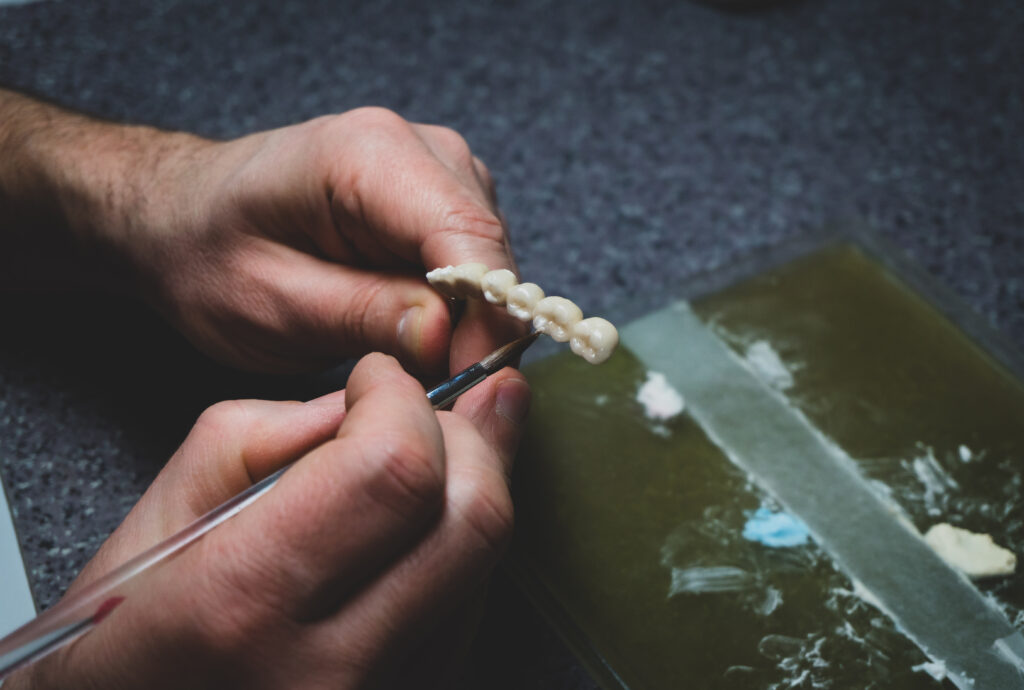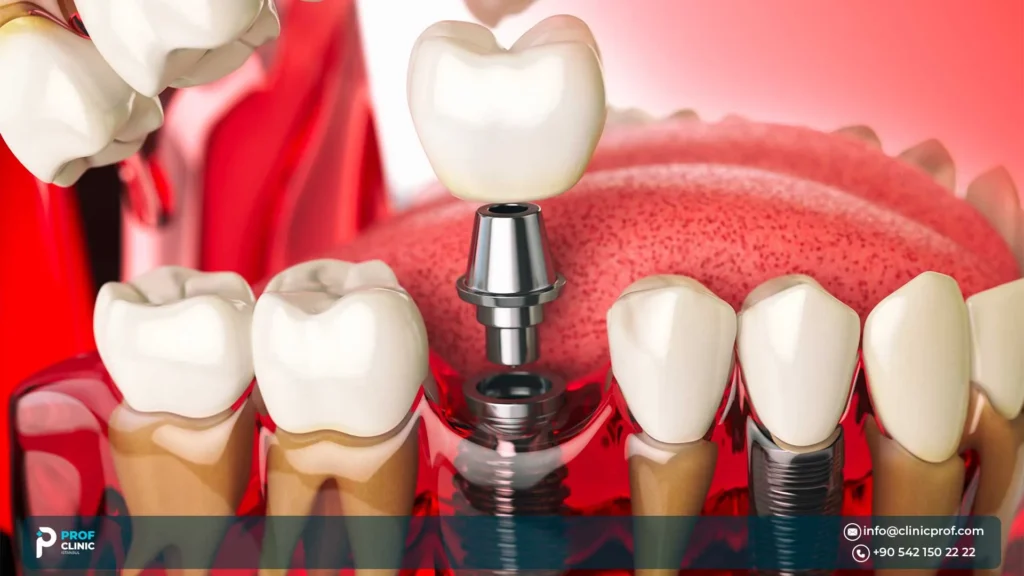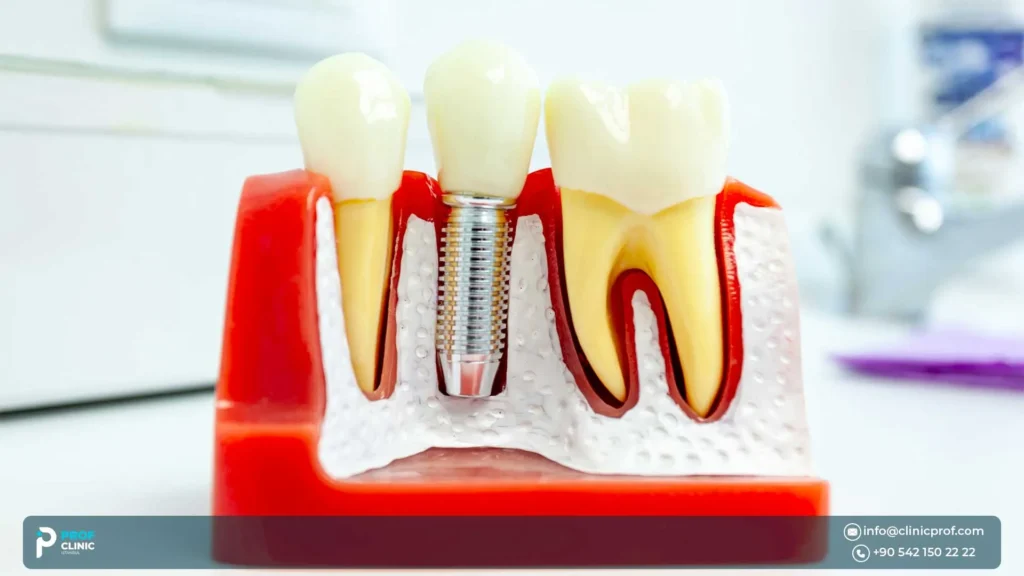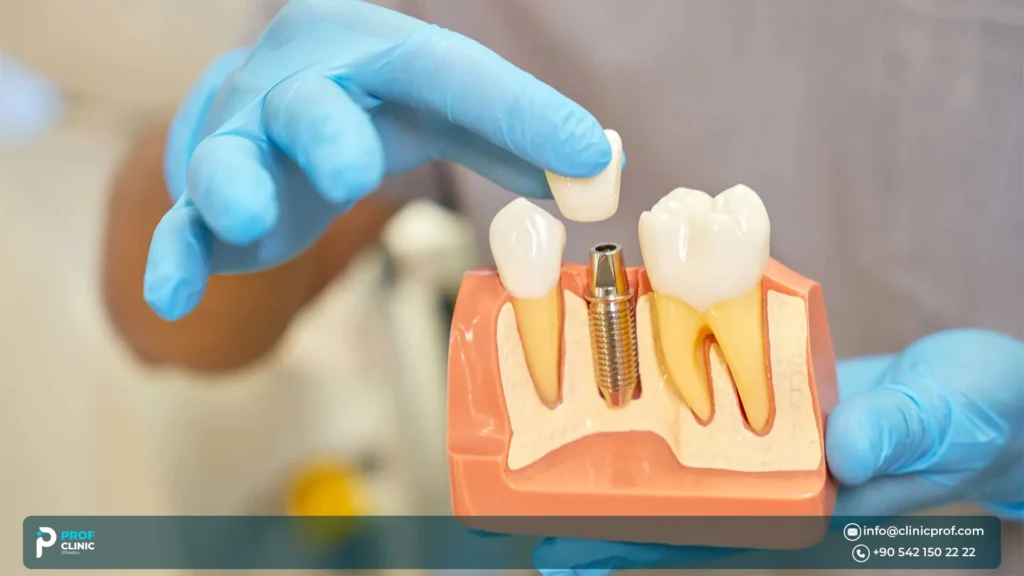Introduction
Dental crowns are one of the most common restorative treatments used to repair damaged, decayed, or weakened teeth. They not only improve the appearance of your smile but also restore functionality, allowing you to chew and speak properly. However, understanding the costs, benefits, and maintenance involved with dental crowns is crucial to making an informed decision about your dental care. This article will cover everything you need to know, from the different types of crowns to the role of crown cement and what to do if your crown comes loose.
What is a Dental Crown?
A dental crown is a cap placed over a damaged or decayed tooth to restore its shape, size, strength, and appearance. Crowns are also used to protect teeth after procedures like root canals or to replace missing teeth when combined with dental implants or bridges.
Types of Dental Crowns
- Porcelain Crowns: These offer a natural look and are commonly used for front teeth.
- Metal Crowns: Known for their durability, metal crowns are often used for molars.
- Porcelain-Fused-to-Metal (PFM): These combine the strength of metal with the aesthetics of porcelain.
- Zirconia Crowns: These are both strong and aesthetically pleasing, making them a popular modern option.
Also read: A Dental Implant or a Bridge: What’s Better?
How Much Do Dental Crowns Cost?

The cost of a dental crown can vary significantly based on factors like the material used, the location of the dental practice, and whether additional procedures are required.
- Porcelain Crowns
- Cost: $800 – $2,500 per tooth
- Best for: Front teeth where aesthetics are a priority.
- Metal Crowns
- Cost: $600 – $2,000 per tooth
- Best for: Back teeth due to their strength and durability.
- Zirconia Crowns
- Cost: $1,000 – $3,000 per tooth
- Best for: Patients looking for a durable, metal-free solution.
- Porcelain-Fused-to-Metal Crowns
- Cost: $800 – $2,400 per tooth
- Best for: Teeth requiring both strength and a natural appearance.
Also read: Cost of Dental Crown Repair: What Influences the Price?
What is Crown Cement?

Crown cement, also known as dental cement, is the adhesive used to bond the crown to the tooth. It plays a critical role in ensuring that the crown stays securely in place while maintaining a natural look and feel.
Types of Crown Cement
- Temporary Cement: Used for short-term fixes or temporary crowns while waiting for a permanent crown.
- Permanent Cement: Designed for long-term use, offering strong adhesion and durability.
If a crown becomes loose, crown glue or temporary dental cement can be used as a short-term solution until you can visit your dentist.
Also read: Why are Emax crowns the best for dental implants?
What to Do if Your Crown Falls Off
If your crown comes loose or falls off, it’s important to act quickly to prevent further damage to the underlying tooth.
Steps to Take:
- Save the Crown: Keep the crown safe and clean.
- Clean the Tooth: Gently rinse your mouth with warm water to remove debris.
- Use Temporary Glue: Over-the-counter crown glue can be applied to temporarily reattach the crown. However, this is not a permanent fix.
- Visit Your Dentist: Schedule an appointment as soon as possible for proper reattachment or replacement.
How Much Does It Cost to Reattach a Crown? Reattaching a crown with new cement typically costs between $100 and $300, depending on the condition of the crown and tooth.
Benefits of Dental Crowns
Dental crowns offer numerous advantages, making them one of the most effective restorative treatments available.
- Restored Functionality: Crowns restore the ability to chew and speak properly.
- Aesthetic Improvement: Porcelain and zirconia crowns provide a natural, seamless look.
- Durability: High-quality crowns can last 10-15 years or more with proper care.
- Protection: Crowns protect weakened teeth from further decay or damage.
ِAlso read: Dangers of Dental Crowns: What You Need to Know
Maintenance Tips for Dental Crowns
Proper maintenance is essential to ensure the longevity of your dental crown.
- Practice Good Oral Hygiene: Brush and floss daily to keep the crown and surrounding teeth clean.
- Avoid Hard Foods: Chewing on hard objects like ice or nuts can chip or crack the crown.
- Regular Dental Checkups: Visit your dentist for regular cleanings and to monitor the condition of your crown.
- Use a Night Guard: If you grind your teeth, a night guard can prevent damage to your crown.
Also read: Enhancing Your Smile, The Benefits of Dental Implant Zirconia Crowns
Frequently Asked Questions
How long do dental crowns last?
Most dental crowns last between 10-15 years, but proper care can extend their lifespan.
Can dental crowns get cavities?
While the crown itself cannot decay, the tooth underneath can develop cavities if proper hygiene isn’t maintained.
What should I do if my crown feels loose?
Visit your dentist immediately. In the meantime, use temporary crown glue to keep the crown in place.
Are dental crowns painful to get?
The procedure is minimally invasive and typically involves local anesthesia to ensure comfort.
Conclusion
- Dental crowns are an excellent solution for restoring damaged teeth, improving your smile, and maintaining oral health. Understanding the costs, benefits, and maintenance involved, as well as the role of crown cement, ensures you’re well-prepared for the procedure. If you experience any issues, such as a loose crown, consult your dentist promptly to avoid further complications. With proper care, a dental crown can provide long-lasting results and protect your teeth for years to come.
I was a little hesitant to come here after reading some reviews on Yelp but decided to give it a try after being reassured by Millie (who is really sweet and pleasant) over the phone, and I’m really happy I did. The Clinic is beautiful, modern, and clean, something that really makes a difference for me going to the Turkey. They were very prompt.

Brant Henley
London
Today I finished my crowns treatment they look beautiful natural I like them a lot I recommend everyone get your Hollywood smiles here it’s worth it…. thank you all❤️❤️❤️

Borqna Olari
Chicago
Happy Patients
Curious About Patient Experiences?
+100,000 Happy Clients and Counting in +80 Countries
Contact Us
Just contact us, then experience the benefits of Prof Clinic.
We will arrange everything for you.




